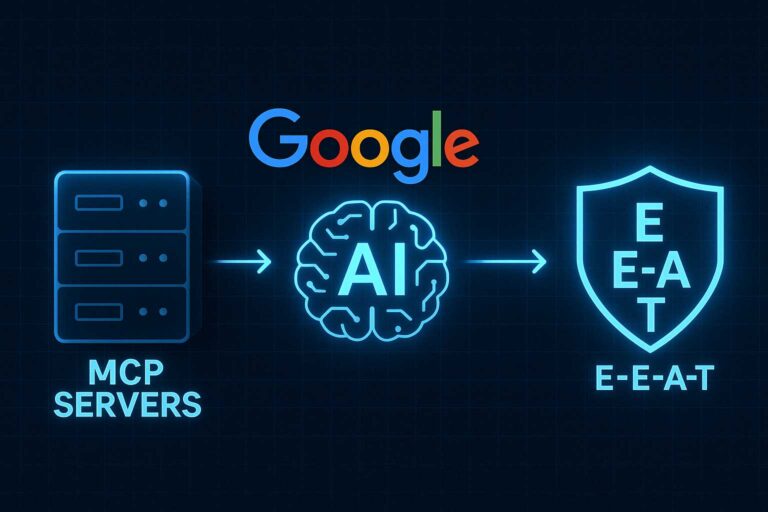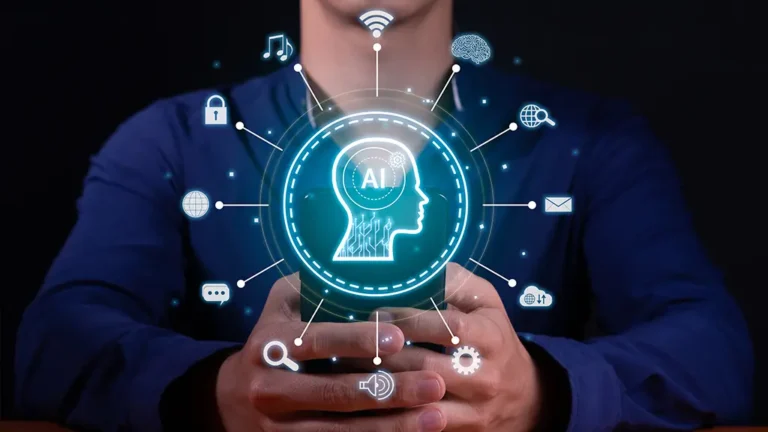What Google Thinks Of AI Content on Websites
Have you ever wondered how much of the content you consume online is created by machines? Let’s dive into the intriguing world of Artificial Intelligence (AI) content. AI content refers to digital content that is created either partially or entirely by AI tools. The prevalence of AI-generated content on websites has sparked discussions regarding its authenticity, ethical issues, and effectiveness.
This article explores what AI content is, along with its advantages and disadvantages. We also provide practical tips for creating AI-generated content that feels authentic and genuinely resonates with readers, following SEO best practices and ethical guidelines.
Additionally, we will examine Google’s perspective on AI content, including its impact on SEO and user experience. Understanding how Google views AI content can help you navigate the complex waters of SEO more effectively.
Key Takeaways:
- To truly connect with your audience, AI content should prioritize delivering meaningful and unique insights.
- Using a conversational tone, varying sentence structures, and personal touches can enhance the authenticity of AI content.
- Google values quality and relevance in AI content, which can impact SEO ranking, user experience, and audience engagement on websites.
What is AI Content?
AI content refers to any text, images, or other materials generated with the assistance of artificial intelligence technologies, such as ChatGPT and Jasper. In recent years, the idea of AI-generated content has become increasingly popular due to its ability to streamline content creation processes, enhance efficiency, and support content producers in generating materials across various formats while adhering to SEO best practices that improve web traffic and search rankings.
Additionally, the development of prompt engineering has revolutionized how AI tools generate and refine content. This technology employs smart algorithms to analyze user needs and trends, ultimately resulting in original content that meets the quality benchmarks set by platforms like Google.
Why is AI Content Used on Websites?
AI-generated content is utilized on websites to empower businesses to strengthen their online presence and marketing strategies by delivering user-centric content that resonates with target audiences. Companies leverage AI-generated content to improve their digital ecosystem, boost search rankings, and increase web traffic through relevant and user-focused material. This approach also helps in adhering to spam policies and avoiding keyword stuffing, which can negatively impact search engine optimization (SEO).
Additionally, AI tools assist marketers and content creators in meeting user needs and expectations while adhering to Google’s E-E-A-T guidelines.
Advantages of AI Content
- Scalability: AI content creation technologies can produce articles, blog posts, and social media content in a fraction of the time it would take a human, maintaining a high level of quality.
- Cost-Efficiency: These technologies allow businesses to reduce overhead by minimizing the need to hire additional employees or contractors.
- Audience Targeting: Many AI content generation tools employ advanced algorithms to analyze user interactions, providing valuable insights into target audience preferences.
- Higher Engagement: The synergy of improved audience targeting and precise, data-driven content production leads to higher engagement levels from readers.
Disadvantages of AI Content
- One concern is the risk of producing spammy content, which can erode user trust and result in a negative user experience.
- Issues such as trustworthiness and a lack of human insight can create a disconnect with audiences.
- Over-reliance on algorithms can lead to writing that feels repetitive and robotic.
- AI often struggles to capture the nuances of cultural contexts or evolving trends.
We’d love to hear your thoughts or experiences with AI content! Feel free to share in the comments below.
How Can AI Content Appear Human and Original?
Want to know how to make AI-generated content feel more human and original? Here are some strategies to consider:
- Make Sure Your Content Meets the Needs of Your Audience: Focus on creating well-researched, error-free content that digs deep and answers their questions.
- Apply E-E-A-T Guidelines: Content that adheres to Google’s E-E-A-T (Experience, Expertise, Authoritativeness, and Trustworthiness) guidelines is likely to be perceived as high-quality.
- Use a Human Touch: Incorporate personal anecdotes, analogies, and experiences to enhance relatability.
1. Focus on Delivering Value
Understanding what your users truly need is key in creating AI-generated content that resonates with audiences. By producing helpful content, businesses can ensure that their AI outputs are not only informative but also relevant and engaging.
2. Use a Conversational Tone
A conversational tone makes AI-generated content feel less robotic and more relatable, enhancing audience engagement and building rapport. Writers can use simple language, incorporate rhetorical questions, and add humor to make it more enjoyable.
3. Vary Sentence Structures for Better Readability
Varying sentence structures enhances the readability of AI-generated content, making it more appealing to readers. By mixing sentence lengths and experimenting with different structures, writers can create a more engaging narrative.
4. Add Personal Touches
The Impact of Personal Touches in AI-Generated Content on Audience Engagement
Incorporating personal touches can enhance audience engagement by making the material more relatable and authentic. Content featuring relatable narratives and emotional anecdotes can contextualize data, helping it feel trustworthy.
5. Edit Thoroughly
Editing AI-generated content is crucial for enhancing user experience. Here are some helpful editing tips:
- Make a Handy Checklist: A checklist helps maintain a systematic approach to editing.
- Leverage Helpful Tools: Objective tools can streamline the editing process, enhancing narrative flow.
- Take a Moment to Reflect: View the content from a reader’s perspective.
- Don’t Hesitate to Ask for Feedback: Collaboration can provide significant benefits.
What are the Pitfalls of AI Content Sounding Robotic or Repetitive?
One major downside of AI-generated content is that it can sound robotic or repetitive, missing that personal touch that connects with readers. This can lead to trust issues and ethical questions.
What Does Google Think of AI Content on Websites?
Google focuses on maintaining high standards of quality and relevance in search results. If AI-generated content doesn’t meet these standards, it could be penalized in search rankings.
1. Importance of Quality and Relevance
The significance of quality and relevance lies in their roles for success in search engine results. High-quality content enhances audience engagement and performs better with search engines like Google.
2. Impact on SEO Ranking
The impact of AI-generated content on SEO ranking is crucial for digital marketing strategies. When AI content meets established guidelines for quality and relevance, it can improve search rankings.
3. User Experience and Engagement
User experience and audience engagement play a pivotal role in how effective AI-generated content can be. By incorporating E-E-A-T guidelines, you can create high-quality content that captivates your audience.
Frequently Asked Questions on AI, SEO, and Marketing Strategies
What is Google’s opinion on AI-generated content on websites?
Google sees the value in AI-generated content but stresses the importance of keeping a human touch, aligning with SpamBrain and MUM algorithms to avoid robotic or spam content.
How can I make my AI-generated content appear human, original, and compliant with content standards?
To make your content feel more human, try using a friendly, conversational tone and sharing personal anecdotes. Additionally, thorough editing is crucial to ensure your content offers a fresh perspective.
Is it important to provide value and content relevance through AI-generated content?
Definitely! Google loves content that enriches user experience, so always aim to offer unique insights and helpful information, ensuring it meets SEO best practices.
Will using AI for website content affect my website’s search engine ranking and online presence?
Using AI-generated content won’t directly change your search engine ranking, but if it’s valuable and engaging, it can boost your ranking over time by increasing web traffic.
Are there any risks and ethical issues associated with using AI for website content?
Using AI for website content comes with risks, including the chance that it might sound robotic. However, by following SEO experts’ advice, these risks can be mitigated.
What are some SEO best practices and marketing solutions for creating AI-generated content for websites?
Some best practices include focusing on value, retaining a human touch, and thorough editing to keep everything fresh and relevant.

















